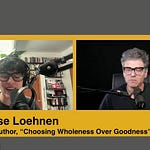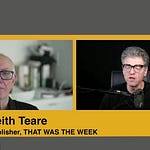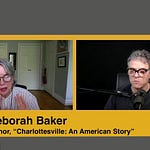Do The Talking Heads, the quinessential art school band of the East Village scene of the 1970’s, still matter? Very much so. At least according to the band’s biographer, Jonathan Gould, who believes that The Talking Heads remain "the archetype of what we now think of as the alternative rock group" - a band prioritizing aesthetic evolution over commercial success. Born from New York's affordable cultural moment when rent cost $275 and abandoned industrial spaces fostered creativity, Talking Heads, Gould argues in Burning the House Down, emerged as agnostic questioners of rock conventions. They rejected "rock hair, rock lights, and singing like a black man," creating minimalist performances under stark white lighting. Their 1984 film "Stop Making Sense" appears utterly modern today, Gould says, suggesting their systematic deconstruction of musical expectations continues influencing artists four decades later.
Five Key Takeaways
1. The Agnostic Approach Talking Heads were "agnostic about everything" - not just religion, but romantic love, rock conventions, and musical preconceptions. This systematic questioning of accepted norms became their defining creative principle.
2. Class and Ambition Shaped Their Art Unlike working-class rock predecessors, they were privileged art school graduates who grew up expecting to "be something." This background fostered artistic ambition over simple commercial success, making them prototypes of the alternative rock ethos.
3. New York's Economic Crisis Created Cultural Opportunity The city's 1970s near-bankruptcy made it affordable ($275/month rent) for young artists. The exodus of residents and businesses left vast industrial spaces available, enabling an unprecedented downtown cultural scene.
4. Minimalism as Rebellion Their aesthetic rebellion involved subtraction, not addition - "no rock hair, no rock lights, no long guitar solos." Working with Brian Eno, they removed rather than added tracks, creating space through restraint.
5. Timeless Modernity "Stop Making Sense" appears contemporary today because they focused on modernity rather than trends. Their systematic rejection of rock clichés created work that transcends its 1980s origins, explaining their continued influence on alternative music.
Jonathan Gould is a writer and a former professional musician. Born and raised in New York City, he began playing drums in high school and became serious about it while attending Cornell University, which led him to move to Boston in 1975 to study with the eminent jazz drummer Alan Dawson. He went on to spend many years working in bands and recording studios in Boston, Woodstock, and New York City before turning his full attention to writing about music in the early 1990s under the mentorship of the retired New Yorker editor William Shawn. In addition to his playing and writing about music, Jonathan also raised a family, served in local politics, and took an active role in the life of the upstate New York community where he lived for twenty-five years. He currently divides his time between Williamsburg, Brooklyn, and Livingston, NY.












Share this post